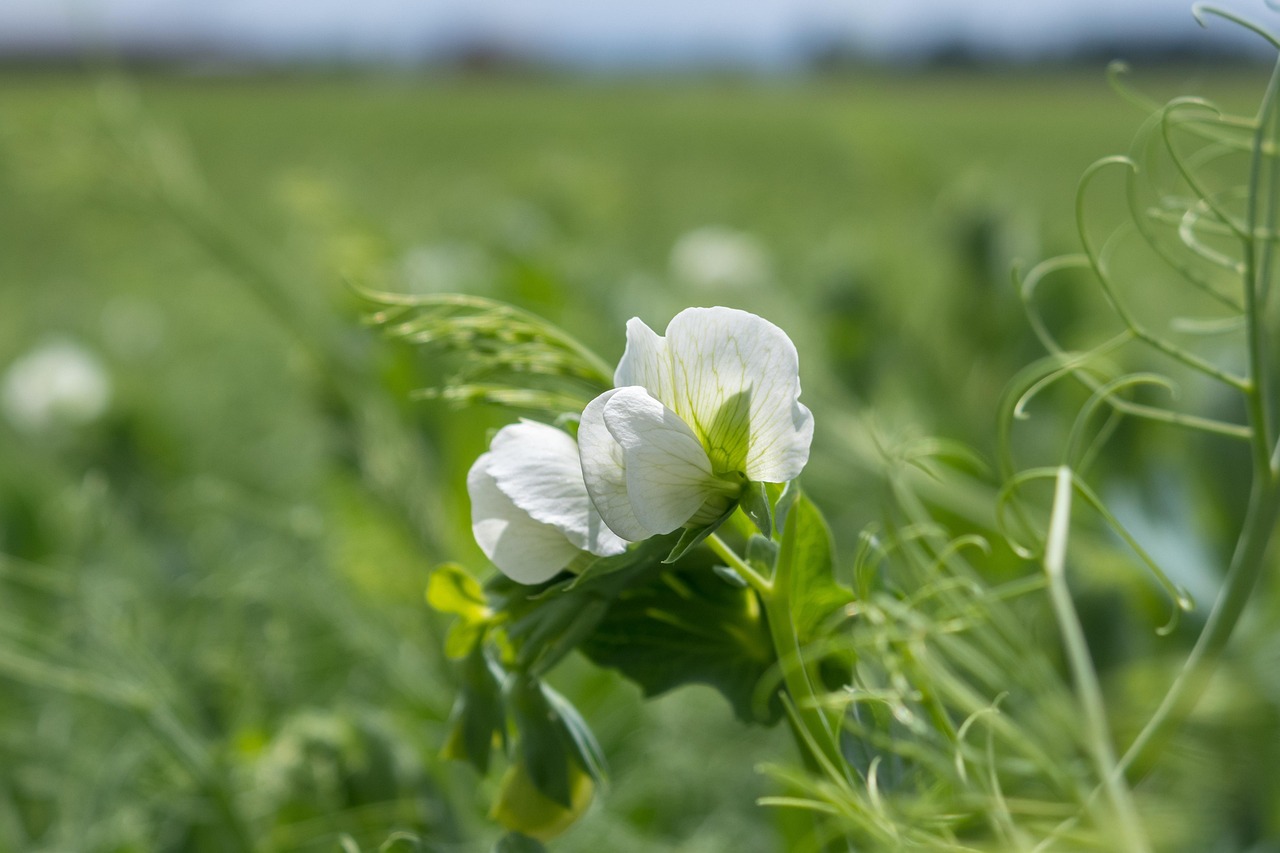Peas, a staple legume crop grown worldwide for their nutritional value, are sensitive to environmental stressors and soil conditions, which is why utilising biostimulants is so important.
While peas are generally hardy, factors such as soil nutrient deficiencies, water stress, and extreme weather conditions can significantly impact their growth and yield. In recent years, an increasing number of growers and agronomists have included biostimulants, such as Algifol, in their nutrient management plans, as they enhance the growth, productivity, and resilience of pea plants.
But what exactly are biostimulants, and how can they benefit peas? Biostimulants are natural or synthetic substances that, when applied to plants, stimulate natural growth processes to improve plant health, resilience, and productivity. Unlike fertilisers, which provide essential nutrients, biostimulants enhance the plant’s physiological processes, improve nutrient uptake, or promote stress tolerance. They can contain a range of active ingredients, such as seaweed extracts, humic substances, amino acids, microbial inoculants, or peptides, all designed to improve plant functions.
Algifol is concentrated brown algae gathered from the North Atlantic, dried, and refined to maximise its wealth of trace elements, vitamins, enzymes, amino acids, carbohydrates, polyuronides, and growth-regulating plant hormones.
The Role of Biostimulants in Pea Growth
Peas are nitrogen-fixing plants, meaning they have a symbiotic relationship with rhizobia bacteria that help them convert atmospheric nitrogen into a usable form. However, soil pH, moisture levels, and temperature can affect this nitrogen fixation process. Biostimulants can help peas by enhancing various physiological aspects, including nutrient uptake, root development, stress tolerance, and disease resistance.
Enhanced Nutrient Uptake
Peas require a balanced supply of nutrients for optimal growth, and biostimulants can help improve nutrient uptake efficiency. Biostimulants, such as Algifol, stimulate root development, enabling the plants to access nutrients more effectively, even in nutrient-poor soils. By improving nutrient availability and absorption, biostimulants can prevent nutrient deficiencies, which often result in stunted growth and lower yields.
Increased Stress Tolerance
Peas are susceptible to environmental stress, including drought, high temperatures, and frost. Stress can reduce photosynthesis and hinder overall plant development. Algifol, made from seaweed, contains growth-promoting compounds that help the plant adapt to water stress and other environmental factors, allowing for better survival and growth in extreme weather.
Improved Root System Development
A robust root system is critical for peas to access water and nutrients, especially during early growth stages. Biostimulants can stimulate root growth and branching, enhancing the overall root mass. This, in turn, improves the plant’s ability to absorb water and nutrients from the soil, contributing to better overall plant health and development. Enhanced root systems also improve the pea plant’s ability to fix nitrogen, reducing the need for external nitrogen fertilisers.
Boosted Symbiotic Nitrogen Fixation
Nitrogen fixation is a key process for peas, and anything that enhances the activity of rhizobia bacteria can lead to improved nitrogen uptake. Biostimulants can enhance the nodulation process, promoting more efficient nitrogen fixation. This improves the plant’s growth and reduces the need for synthetic nitrogen fertilisers, which can be costly and environmentally harmful.
Disease Resistance
Peas, like other crops, are susceptible to a variety of diseases, including root rot, powdery mildew, and blight. Some biostimulants have antifungal, antibacterial, or immune-stimulating properties that help protect the plant from these pathogens. For instance, biostimulants with microbial inoculants, such as beneficial bacteria and fungi, can compete with harmful pathogens and reduce the likelihood of disease outbreaks. Additionally, biostimulants can help activate the plant’s innate defence mechanisms, making it more resistant to infection.
Enhanced Flowering and Pod Development
Biostimulants can also help improve reproductive success in peas by stimulating flowering and pod formation. Certain biostimulants, especially those containing plant growth regulators, can help synchronise flowering, increase the number of flowers, and promote pod sets, leading to higher pod numbers and, ultimately, increased yields.
We hope this short overview of how biostimulants can help peas has been useful. If you’d like to know more about Algifol, please don’t hesitate to contact Marcus on 07702 293 727 or email [email protected]

